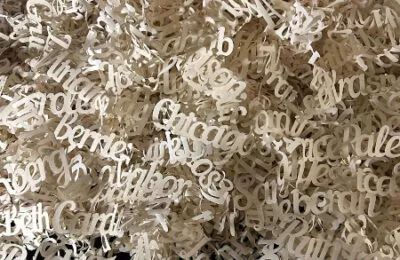With the plethora of books about diasporas out there, it is hard to know which one is worth reading. Many of the books echo similar sentiments about belonging to a diaspora, and employ similar research tools: interview many family members, travel to distant lands that the family once occupied, bring the reader back to the authors life, whereupon he ties the ancestral story to his own.
But Ariel Sabars My Fathers Paradise, stands out.
Not only is it one of those books that you dont put down once you start, but Sabar challenges the values that carried his people from its place of origin to its diaspora.
By growing up with a father, who at once was an international expert in Aramaic in California in the 70s and, at the same time, still the 12 year-old boy living in Zakho, Kurdistan, in the early 1950s, Sabar started breathing the meaning of diaspora as a baby.
He first started by rejecting the notion that he belonged to any diaspora, especially since his mother was an American Jew from an established New York family.
In fact, he spent all of his childhood distancing himself from his Aramaic-obsessed father. He even stopped calling his father Dad and switched to Yona.
Sabar goes onto college, marries and has a thriving journalism career.
Then his son is born. A slow fire is kindled.
Perhaps because now Sabar is a father, he begins to approach his own father.
This also means plumbing the depths of his fathers psyche, his fathers never-ending need and desire to save Aramaic, and the memory of Zakho, a small village in northern Iraq.
Thus begins Sabars own journey.
I takes Sabar a number of years and, like all other diaspora novels, across continents, including some pretty dangerous situations, in a hopeful attempt to reconcile family misfortunes.
But his journey is not really about his trips back to Iraq, even though they are quite moving and exciting his journey is about the importance of keeping ones language when uprooted from home, and how that informs ones life, as well as a peoples history.
Especially when that language is thousands of years old and facing extinction.
Sabars journey also leads him to answering a question: Is there a way to reconcile past and present? A universal question for all diasporas, but an especially poignant one for his Dad, a brilliant professor who struggles with the question of reconciliation for the rest of his life. It is also a question that, despite the authors childhood anathema toward his fathers obsession with reconciliation, ironically ends up encapsulating Sabars own journey. Like his father, he will continue to struggle with this question, but, by the end of his book, his recorded journey, he has some answers.
Initially, Sabar hopes that interviews with his grandmother and trips back to Iraq will bring him some answers.
The trips back to Iraq are thrilling, especially since in the beginning of the book Sabar does such a magnificent job of describing life in Iraqi Kurdistan through his familys story, and how life there remained still for millennia.
He meets people connected to the family lore, goes to the spots that shaped his fathers childhood, and relishes the Aramaic that is spoken. Finally! To hear and see the language his father spoke, which had seemed like some university-lab specimen during Sabars own childhood, is very exciting. His trip to his grandmother in Israel is also very moving.
But still, Sabar is searching for answers.
Then his son is born.
That is when Sabar must face his own reconciliation.
Is he a modern, American, California-born journalist?
Or is he a Jew, born to a long line of Kurdistani, Aramaic-speaking people, who have been uprooted and displaced in Israel and America?
He takes on some pretty desperate measures to get some answers and closure to the question of reconciliation.
Ultimately, he begins to face the axiomatic diasporic question about his father, his fathers family, the Kurdish Jews and the Aramaic language.
Is it a triumph or tragedy when one reconciles ones past and present?
Sabar is greatly challenged by this question and others, but what most challenges him is his own acceptance of responsibility toward his fathers past, the Beh-Sabagh familys history.
Is it the duty of the child of diaspora to hold on to the history, the language, or to begin a new history?
And then, if it is an obligation the child feels driven to fulfill, how does he or she pass that onto the child? Is every generation a link, or can each generation begin its own new history?
This incredibly well-written family story and Kurdish history will keep you through Sabars modern-ancient journey, as he struggles with his own responsibility and the choices he made as a link in a great Jewish chain.












